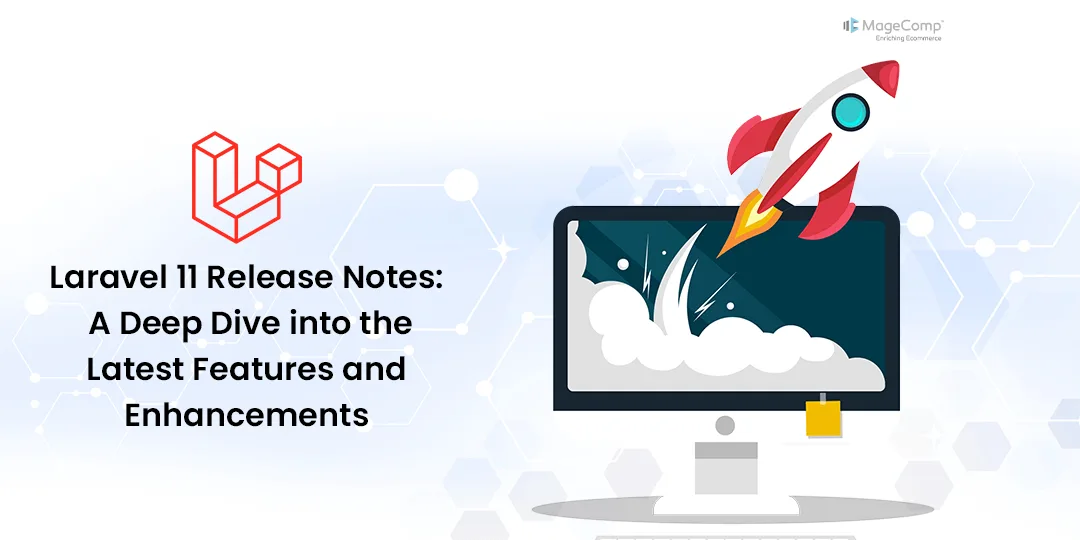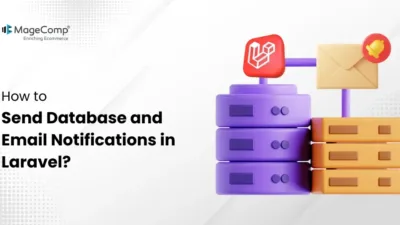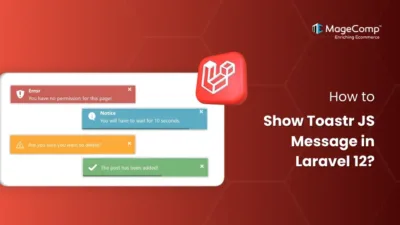Laravel has been one of the most popular frameworks in web development, providing developers around the globe with an elegant syntax, powerful tools, and clear design patterns. Laravel is constantly improving with each new release, adding new features and improvements that make the development process even more exciting.
Laravel, the PHP framework that is praised for its beauty and the number of convenient features it offers, has done it again with the release of Laravel 11. Laravel 11 was released on 12th March 2024. Laravel 11 is set to be released with a plethora of new features, improvements, and optimizations that will enable developers to create even more powerful applications. In this blog post, we will provide an overview of Laravel 11, the most important features and changes in the new version of the framework.
Versioning Scheme and Support Policy
Before we delve into the specifics of Laravel 11, let’s first understand the versioning scheme and support policy that govern the Laravel framework. Laravel follows Semantic Versioning, with major framework releases occurring annually, typically in the first quarter of the year. Minor and patch releases may be issued more frequently, with a commitment to never include breaking changes in these updates.
For Laravel 11, the support policy ensures bug fixes for 18 months and security fixes for 2 years following the release date. It’s essential to adhere to these guidelines to ensure the stability and security of your Laravel applications.
| Version | Release Date | Bug Fixes Until | Security Fixes Until |
| 10 | 14th February, 2023 | 6th August, 2024 | 4th February, 2025 |
| 11 | 12th March, 2024 | 3rd September, 2025 | 12th March, 2026 |
Laravel 11: Latest Features and Updates
The latest Laravel version 11 release comes with a plethora of new features and enhancements to streamline development and help developers build even more efficient and powerful applications.
PHP 8.2 Requirement
Laravel 11.x mandates a minimum PHP version of 8.2, ensuring compatibility with the latest advancements in the PHP language.
Streamlined Application Structure
Another one of the key changes in Laravel 11 is the simplified application architecture. Created by Taylor Otwell and Nuno Maduro, this new structure is designed to be more lightweight and up-to-date with modern development practices while still feeling like Laravel.
The Application Bootstrap File
The bootstrap/app.php file is the code-first application configuration file in Laravel 11. From this central point, developers can fine-tune many aspects of the application, such as routing, middleware, service providers, and error handling.
Service Providers
Laravel 11 has a default application structure where only one AppServiceProvider is provided, which contains the functionality that was earlier divided among several service providers. Event discovery is now enabled by default, which makes the registration of events and listeners easier.
Opt-in API and Broadcast Routing
The api.php and channels.php route files are not automatically imported in Laravel 11 applications. However, developers can choose to generate these files using basic Artisan commands, which makes it more flexible and avoids adding too much unnecessary code.
Middleware
Previous versions of Laravel included several middleware by default. In Laravel 11, these middleware have been moved into the framework itself, eliminating redundancy and streamlining the application structure.
Scheduling
Scheduled tasks can now be defined directly in the routes/console.php file using the new Schedule facade, simplifying the management of scheduled tasks.
Exception Handling
Exceptional handling can now be customized directly from the bootstrap/app.php file, and there are fewer files in a new Laravel application.
Base Controller Class
The base controller class included in new Laravel applications has been simplified, removing dependencies on internal Laravel classes and traits.
Application Defaults
Laravel 5.3 has a new default database system, SQLite, which makes it easy for developers to begin creating their applications.
Laravel Reverb
Laravel Reverb, created by Joe Dixon, is a first-party WebSocket server that offers high-performance and highly scalable real-time communication to Laravel applications. As an extension to Laravel’s event broadcasting features, Reverb provides horizontal scaling through Redis’s publish/subscribe functionality for high-traffic applications.
Per-Second Rate Limiting
Laravel 11 has added the ability to set per-second rate limits for HTTP requests and queued jobs.
Health Routing
New Laravel 11 applications include a health routing directive, defining a simple health-check endpoint that can be invoked by third-party health monitoring services or orchestration systems like Kubernetes.
New Artisan Commands
Laravel 11 has new Artisan commands for creating classes, enums, interfaces, and traits, which makes the work easier.
Model Casts Improvements
In Laravel 11, casts are defined using a method rather than a property, which provides a cleaner and more fluent way of casting attributes.
The once Function
The once helper function in Laravel 11 is a callback that runs and stores the result in memory for the entire request to reduce computation time.
Improved Performance When Testing With In-Memory Databases
Laravel 11 offers significant performance improvements when using the :memory: SQLite database during testing, which makes the tests run faster.
Improved Support for MariaDB
Laravel 11 has enhanced support for MariaDB, which has its own driver that offers better default settings for this DBMS.
Inspecting Databases and Improved Schema Operations
Enhanced database schema operations and inspection methods in Laravel 11 provide greater flexibility and control when working with databases.
How To Install Laravel 11?
To install Laravel 11, developers can use Composer or Laravel’s command-line tool, specifying the -dev flag during installation to download the latest version.
Official Documents
For more information about the release of Laravel 11, check the official Laravel 11 Release Notes.
Conclusion
Laravel 11 is a new version of the Laravel framework that has many new features and enhancements for developers and companies. Whether you are creating a simple web application or an application for an enterprise, Laravel 11 has all the tools and community backing you need to succeed in today’s world.
Upgrade to Laravel 11 today and experience the future of web development with Laravel!





